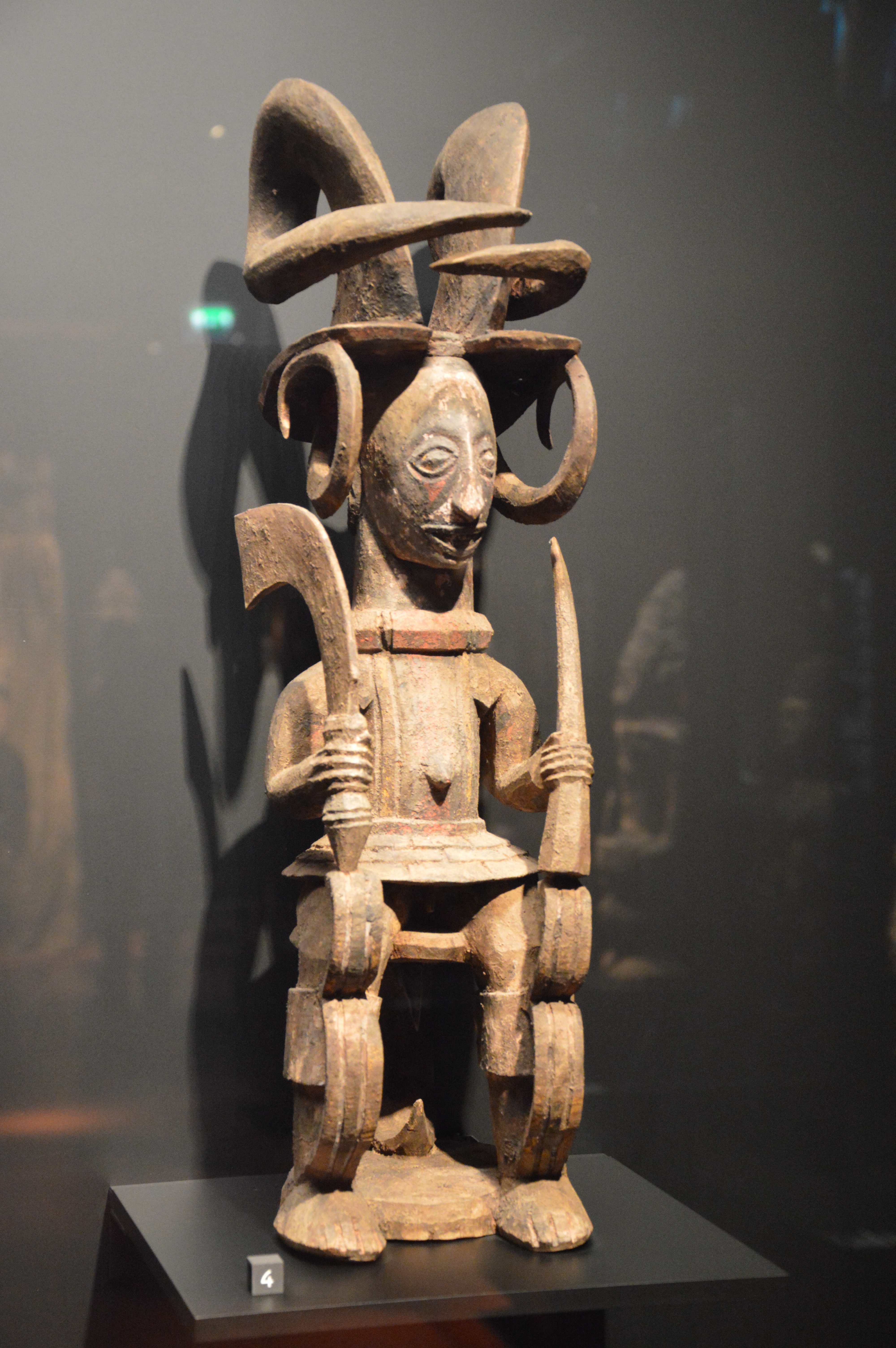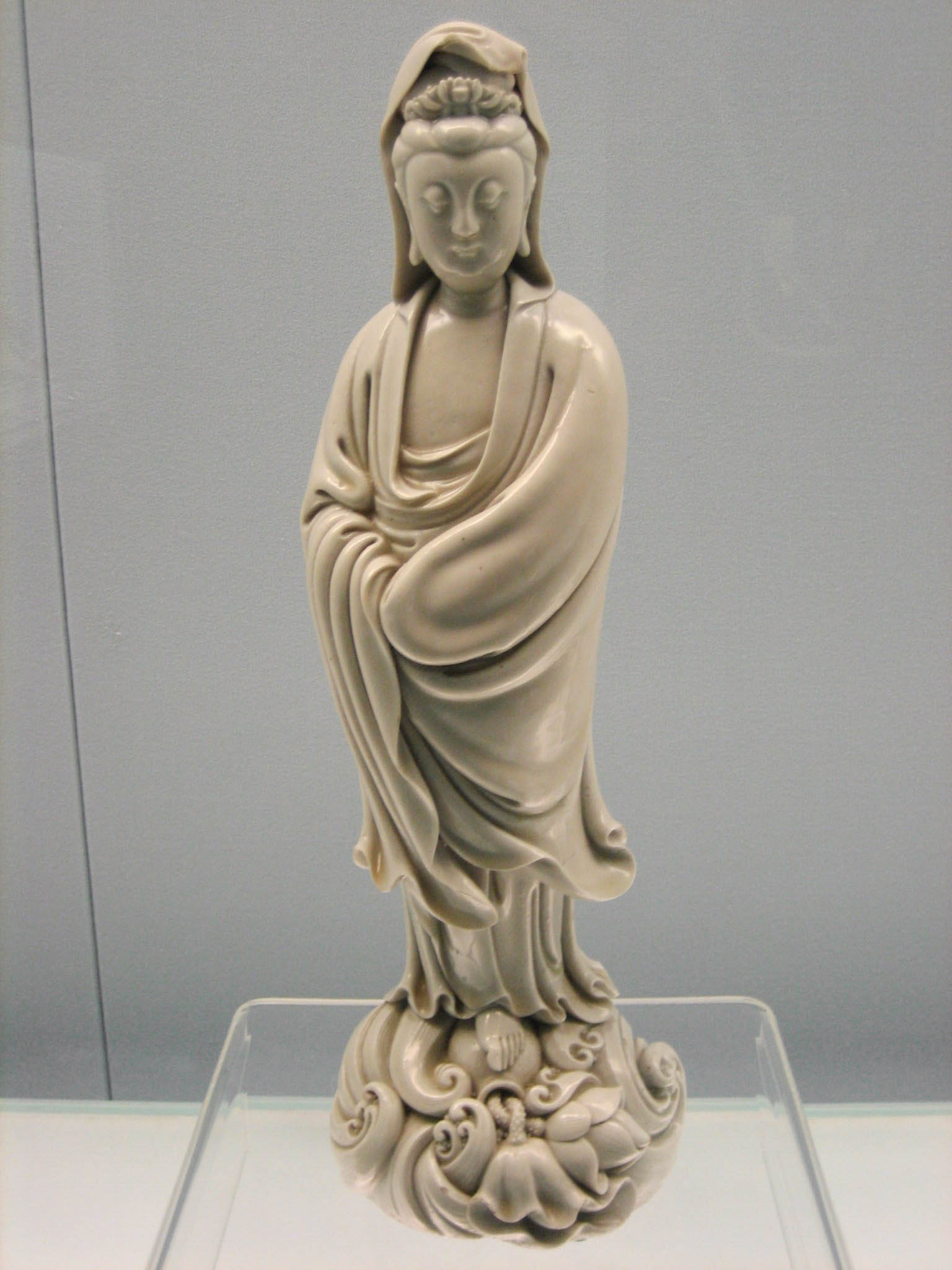|
Arusi
Arusi (also spelled Alusi or Arunsi) are spirits that are worshiped and served in the Igbo religion. There are many different Arusi and each has its own purpose and function. Ancestors The Igbo world is divided into several interconnected realms, principal among them being the realm of the living, the realm of the dead or of the ancestors, and the realm of the unborn. Individuals who led an honorable life and received a proper burial proceeded to the ancestral realm to take their place among the ancestors ("''Ndichie''"), who are separate from the Arusi. From there they kept a watchful eye on the clan and visited their loved ones among the living with blessings such as fertility, good health, longevity, and prosperity. In gratitude the living offered sacrifices to them at the family hearth, and sought their counsel. Arusi worship Each major Arusi has a priest in every town that honors it, and the priest is assisted by a group of acolytes and devotees. Children and Arusi Childre ... [...More Info...] [...Related Items...] OR: [Wikipedia] [Google] [Baidu] |
Igbo Religion
Ọdinani (), also ''Omenala'', ''Omenana'', ''Odinana'' or ''Ọmenani'', are the traditional cultural beliefs and practices of the Igbo people of south east Nigeria.Afulezy, Uj"On Odinani, the Igbo Religion", ''Niger Delta Congress'', Nigeria, April 03, 2010 These terms, as used here in the Igbo language, are synonymous with the traditional Igbo "religious system" which was not considered separate from the social norms of ancient or traditional Igbo societies. Theocratic in nature, spirituality played a huge role in their everyday lives. Although it has largely been supplanted by Christianity, the indigenous belief system remains in strong effect among the rural and village populations of the Igbo, where it has at times influenced the colonial religions. Odinani is a pantheistic and polytheistic faith, having a strong central deity at its head.Mbaegbu, Chukwuemeka (4 March 2015). "A Philosophical Investigation of the Nature of God in Igbo Ontology". ''Department of Philosophy ... [...More Info...] [...Related Items...] OR: [Wikipedia] [Google] [Baidu] |
Igbo Mythology
Ọdinani (), also ''Omenala'', ''Omenana'', ''Odinana'' or ''Ọmenani'', are the traditional cultural beliefs and practices of the Igbo people of south east Nigeria.Afulezy, Uj"On Odinani, the Igbo Religion", ''Niger Delta Congress'', Nigeria, April 03, 2010 These terms, as used here in the Igbo language, are synonymous with the traditional Igbo "religious system" which was not considered separate from the social norms of ancient or traditional Igbo societies. Theocratic in nature, spirituality played a huge role in their everyday lives. Although it has largely been supplanted by Christianity, the indigenous belief system remains in strong effect among the rural and village populations of the Igbo, where it has at times influenced the colonial religions. Odinani is a pantheistic and polytheistic faith, having a strong central deity at its head.Mbaegbu, Chukwuemeka (4 March 2015). "A Philosophical Investigation of the Nature of God in Igbo Ontology". ''Department of Philosophy ... [...More Info...] [...Related Items...] OR: [Wikipedia] [Google] [Baidu] |
Amadioha
Amadioha is the Arusi or Agbara of thunder and lightning of the Igbo people of southeastern Nigeria. He is amongst the most popular of Igbo deities and in some parts of Igboland, he is referred to as Amadiora, Kamalu (which is short for ''Kalu Akanu''), Kamanu, or Ofufe. Astrologically, his governing planet is the Sun.Uchendu, Victor C. ''The Igbo of Southeast Nigeria''. Page 96 His color is red, and his symbol is a white ram.Diala, Isidore. ''Ritual and Mythological Recuperation in the Drama of Esiaba Irobi''. Page 104 Metaphysically, Amadioha represents the collective will of the people. He is often associated with Anyanwu, who is the Igbo god of the Sun. While Anyanwu is more prominent in northern Igboland, Amadioha is more prominent in the southern part. His day is Eke, which is the first market day of the Igbo four-day week. Origins Literally Amadioha means man of the people. Most people from the eastern part of Nigeria ascribe the name to their local deity/god. Shrines t ... [...More Info...] [...Related Items...] OR: [Wikipedia] [Google] [Baidu] |
Agwu Nsi
Agwu Nsi (known as Agwo Nsi in the Americas) is the Arusi of divination Divination (from Latin ''divinare'', 'to foresee, to foretell, to predict, to prophesy') is the attempt to gain insight into a question or situation by way of an occultic, standardized process or ritual. Used in various forms throughout histor ....Canada: Immigration and Refugee Board of Canada, Nigeria: The Igbo god Agwu-Nsi (Agwo Nsi); succession practices for the position of chief priest of Agwu-Nsi, particularly in Amankwa village, 14 June 2002, NGA39067.E References Igbo gods Health gods Oracular gods {{Africa-myth-stub ... [...More Info...] [...Related Items...] OR: [Wikipedia] [Google] [Baidu] |
Ekwensu
Ekwensu is a trickster of the Igbo people, a trickster spirit of confusion,that serves as the Alusi (god) of bargains and the tortoise.Crafty at trade and negotiations. He is often invoked for guidance in difficult mercantile situations. He is perceived as a spirit of violence that incites people to perform violent acts. His companion was Ogbunabali. Despite contemporary interpretations, Ekwensu was not originally regarded as the devil. With the rise of Christianity, the more beneficent aspects of the deity were supplanted by missionaries who came to represent Ekwensu as Satan. Europeans influenced their beliefs of good and evil to convince Igbo that Ekwensu was Satan-like. The goal of European’s influence was to easily colonize the Igbo tribe, forcing them to be fearful of something.Originally, Ekwensu was highly honored as one of the benevolent lunar deities. The Igbo do not believe in God nor the Devil, nor heaven nor hell, nor demons nor angels because they do not have a c ... [...More Info...] [...Related Items...] OR: [Wikipedia] [Google] [Baidu] |
Ogbunabali
Ogbunabali ( ig, Ogbúnàbàlị̀, lit= ekills at night) is the traditional Igbo death deity. His name is considered to be a literal description of his character as he is said to kill his victims in the night, these usually being criminals or those who have committed an unspeakable taboo A taboo or tabu is a social group's ban, prohibition, or avoidance of something (usually an utterance or behavior) based on the group's sense that it is excessively repulsive, sacred, or allowed only for certain persons.''Encyclopædia Britannica .... References Igbo gods African gods Death gods {{Africa-myth-stub ig:Ogbunabali ... [...More Info...] [...Related Items...] OR: [Wikipedia] [Google] [Baidu] |
Yoruba Religion
The Yoruba religion (Yoruba: Ìṣẹ̀ṣe), or Isese, comprises the traditional religious and spiritual concepts and practice of the Yoruba people. Its homeland is in present-day Southwestern Nigeria, which comprises the majority of Oyo, Ogun, Osun, Ondo, Ekiti, Kwara and Lagos States, as well as parts of Kogi state and the adjoining parts of Benin and Togo, commonly known as Yoruba land. It shares some parallels with the Vodun practiced by the neighboring Fon and Ewe peoples to the west and to the religion of the Edo people and Igala people to the east. Yoruba religion is the basis for a number of religions in the New World, notably Santería, Umbanda, Trinidad Orisha, and Candomblé. Yoruba religious beliefs are part of Itàn (history), the total complex of songs, histories, stories, and other cultural concepts which make up the Yoruba society. Term The Yoruba name for the Yoruba indigenous religion is Ìṣẹ̀ṣẹ, which also refers to the traditions and ritual ... [...More Info...] [...Related Items...] OR: [Wikipedia] [Google] [Baidu] |
Winti
Winti is an Afro-Surinamese traditional religion that originated in the colony Suriname, part of the Dutch Empire. It is a syncretization of the different African religious beliefs and practices brought in mainly by Akan and Fon slaves during the slave period. The religion has no written sources, nor a central authority. The term is also used for all supernatural beings or spirits (''Wintis'') created by ''Anana'', the creator of the universe. Description(s) Winti is based on three principles: the belief in the supreme creator called Anana Kedyaman Kedyanpon; the belief in a pantheon of spirits called ''Winti''; and the veneration of the ancestors. There is also a belief in ''Ampuku'' (also known as ''Apuku'') which are anthropomorphic forest spirits. An Ampuku can possess people (both men and women) and can also pass itself off as another spirit. Ampuku can also be water spirits, and are known in such cases as ''Watra Ampuku''. C. Wooding (a Winti expert) described Winti i ... [...More Info...] [...Related Items...] OR: [Wikipedia] [Google] [Baidu] |
Orisha
Orishas (singular: orisha) are spirits that play a key role in the Yoruba religion of West Africa and several religions of the African diaspora that derive from it, such as Cuban, Dominican and Puerto Rican Santería and Brazilian Candomblé. The preferred spelling varies depending on the language in question: òrìṣà is the spelling in the Yoruba language, orixá in Portuguese, and orisha, oricha, orichá or orixá in Spanish-speaking countries. According to the teachings of these religions, the orishas are spirits sent by the supreme creator, Olodumare, to assist humanity and to teach them to be successful on ''Ayé'' (Earth). Rooted in the native religion of the Yoruba people, most orishas are said to have previously existed in òrún - the spirit world - and then became Irúnmọlẹ̀ - spirits or divine beings incarnated as human on Earth. Irunmole took upon a human identity and lived as ordinary humans in the physical world, but because they had their origin in the ... [...More Info...] [...Related Items...] OR: [Wikipedia] [Google] [Baidu] |
Igbo Calendar
The Igbo calendar () is the traditional calendar system of the Igbo people from present-day Nigeria. The calendar has 13 months in a year (''afo''), 7 weeks in a month (''onwa''), and 4 days of Igbo market days (afor, nkwo, eke, and orie) in a week (''izu'') plus an extra day at the end of the year, in the last month. The name of these months was reported by Onwuejeogwu (1981). Although worship and spirit honoring was a very big part in the creation and development of the Igbo calendar system, commerce also played a major role in creating the Igbo calendar. This was emphasized in Igbo mythology itself. An example of this is the Igbo market days of which each community has a day assigned to open its markets, this way the Igbo calendar is still in use. Some Igbo communities have tried to adjust the thirteen month calendar to twelve months, in line with the Gregorian calendar. The calendar is neither universal nor synchronized, so various groups will be at different stages of the we ... [...More Info...] [...Related Items...] OR: [Wikipedia] [Google] [Baidu] |
Statuette Masculine Ikenga, Nigeria, Musée Du Quai Branly
A figurine (a diminutive form of the word ''figure'') or statuette is a small, three-dimensional sculpture that represents a human, deity or animal, or, in practice, a pair or small group of them. Figurines have been made in many media, with clay, metal, wood, glass, and today plastic or resin the most significant. Ceramic figurines not made of porcelain are called terracottas in historical contexts. Figures with movable parts, allowing limbs to be posed, are more likely to be called dolls, mannequins, or action figures; or robots or automata, if they can move on their own. Figurines and miniatures are sometimes used in board games, such as chess, and tabletop role playing games. The main difference between a figurine and a statue is size. There is no agreed limit, but typically objects are called "figurines" up to a height of perhaps , though most types are less than high. Prehistory In China, there are extant Neolithic figurines. European prehistoric figurines of women, s ... [...More Info...] [...Related Items...] OR: [Wikipedia] [Google] [Baidu] |





